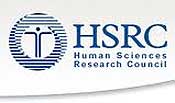
This is the view of Ivan Turok, deputy executive director at the Human Sciences Research Council
The Industrial Development Corporation (IDC) has projected that SA could create around 460,000 direct green jobs in the formal economy by 2025.
Jorge Maia, head of research at the IDC, says the green economy could create about 98,000 new direct jobs in the short-term and almost 255,000 in the medium-term.
"These job estimates escalate once multiplier effects are taken into account, while the informal employment potential is considerable," says Maia.
Though there is no set definition of a green job, they can be defined as activities that aim to reduce the environmental impact of enterprises to sustainable levels, or jobs that conserve or rehabilitate the environment.
Turok says most existing jobs don't fall under this definition - only between 2% and 3% of the economy is involved in green jobs. It is difficult to put a number to how many green jobs have already been created as they are not measured separately by any agency.
"We've made a modest, but positive, start off a low base," Turok says. He puts it at "tens of thousands", but believes more government support is needed if green jobs are to reach their full potential.
In 2011, government, business and organised labour signed the Green Economy Accord, committing signatories to building a more environmentally sustainable economy and create green jobs.
Turok says when the accord was signed, shortly before SA hosted the COP17 climate change conference, it attracted a lot of positive attention. But it has since lost momentum.
Focus on the green economy has been driven by economic development minister Ebrahim Patel, but Turok believes the government as a whole "hasn't bought into the agenda".
Maia says there are a number initiatives driving SA's low-carbon strategy. These include the availability of development finance through the IDC and the Development Bank of SA, the renewable energy bidding programme and local government programmes such as waste management and energy-efficient street lighting.
The labour department says it will retrain labour inspectors on how to identify hazards associated with some of the technologies used in green jobs. "We will be training our inspectors and workers on the risks posed by the transition from fossil fuel to renewables," says labour department chief inspector Thobile Lamati.
The department said in a statement it was doing so in line with recommendations from the International Labour Conference, held in Switzerland last month.
Water and environmental affairs minister Edna Molewa launched the Groen Sebenza job funds pilot project last month, which aims to develop skilled professionals in the biodiversity sector. At least 800 unemployed youths will be placed in public and private organisations in this sector for two-and-a-half years.
In another government initiative, the public works department is implementing a green building programme that includes pilot projects in water efficiency, waste management and eco-labelling construction materials. It also involves a baseline study on energy efficiency in public buildings.
The latest iteration of the Industrial Policy Action Plan mentions exploration of the green economy and energy-saving industries. Government's patchy response to greening the economy might relate to the trade-offs involved.
Though expected to create jobs, greening the economy will also destroy jobs, given that SA is one of the world' s most carbon-intensive economies.
Turok says there is the temptation to see green economy jobs as an "add-on" that will not encompass the whole economy. "But if you are serious about greening the economy, then you have to start the process of reducing carbon emissions across the board," he says, adding this is not necessarily a job creation activity.
It could involve closing down energy-intensive operations, particularly the dirty coal mines and aluminium smelters. "This should be done progressively and not impose prohibitive costs," Turok says.
"But we are not doing a lot about it because, at the moment, we are desperately trying to get the economy growing," he adds.
Government is wary of imposing unnecessary costs on business, particularly given the overwhelmingly negative response to the mention of carbon taxes in the last budget. But, long-term, SA has to act due to threats posed by externally imposed carbon taxes by, for example, the European Union and the USA.
Such taxes could make SA uncompetitive and exports could suffer. "The best thing is to try to head off such taxes by building in our own systems to reduce carbon emissions," Turok says.
Source: Financial Mail via I-Net Bridge

For more than two decades, I-Net Bridge has been one of South Africa’s preferred electronic providers of innovative solutions, data of the highest calibre, reliable platforms and excellent supporting systems. Our products include workstations, web applications and data feeds packaged with in-depth news and powerful analytical tools empowering clients to make meaningful decisions.
We pride ourselves on our wide variety of in-house skills, encompassing multiple platforms and applications. These skills enable us to not only function as a first class facility, but also design, implement and support all our client needs at a level that confirms I-Net Bridge a leader in its field.
Go to: http://www.inet.co.za